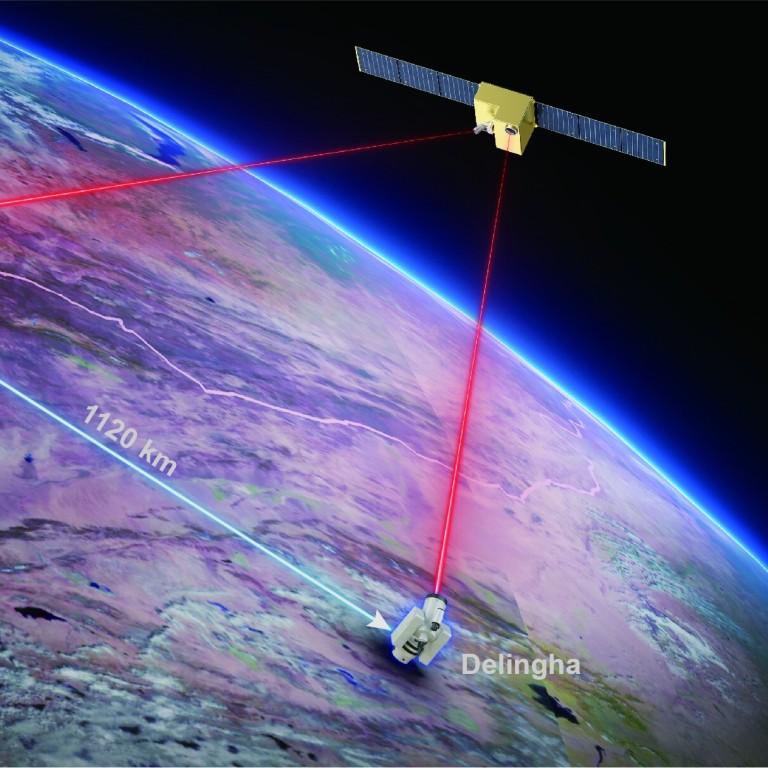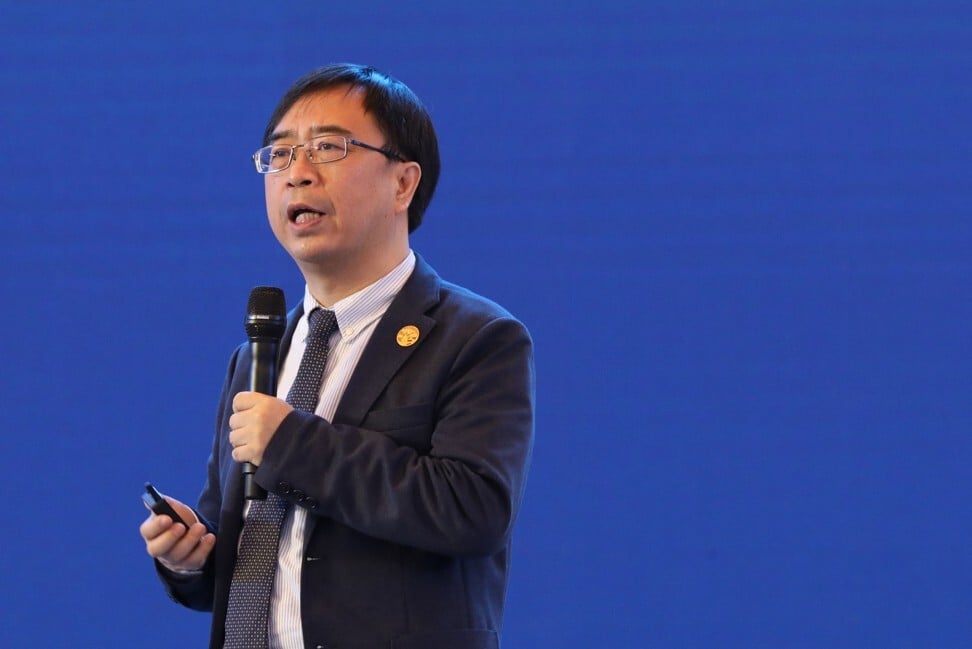
Increased security in quantum communication achieved by Chinese, Oxford scientists
- This new research could help accelerate China’s efforts to develop hacking-resistant communications networks
- Quantum communication takes advantage of the laws of quantum physics to protect data
Physicists have extended the capabilities of secure quantum communication tenfold, marking a step forward in efforts to establish hack-proof network communications, according to a study published by scientific journal Nature on Monday.
Those two sites, both equipped with quantum telescopes, are located in China’s northwest Qinghai province and the western Xinjiang Uygur autonomous region, which are more than 1,000 kilometres apart. Entanglement is a phenomenon in quantum physics in which a pair of entangled particles remain connected and affect each other even when separated by great distances.
“Our method not only increases the secure distance on the ground tenfold, but also increases the practical security of quantum key distribution to an unprecedented level,” the study, co-authored by scientists from China and the University of Oxford in Britain, said.

Those involved in the study include Artur Ekert, a professor of quantum physics at Oxford’s Mathematical Institute; Wang Jianyu, a researcher who leads the Shanghai branch of the Chinese Academy of Sciences (CAS); and Pan Jianwei, who is lead scientist of Quantum Experiments at Space Scale – the government-backed research project in the field.
Quantum communication takes advantage of the laws of quantum physics to protect data. Unlike traditional encryption methods based on mathematics, which can be theoretically cracked by the sheer force of faster and more powerful computers, quantum keys are known to remain intact in the face of such advanced computing capability. Any attempt to eavesdrop will cause a physical change in the message, which would trigger a security alert to the sender or receiver.
“[Quantum communication] is different from modern telecommunications,” said Wang, who is also chief commander of the CAS-operated Micius satellite.
Chinese scientists report breakthrough on quantum internet technology with entangled atoms
Even if the satellite was hacked, the quantum secret keys distributed by it cannot be deciphered, which makes it very secure, according to Wang.
He said the rate of 0.12 bits per second achieved in their study was “relatively very fast using this method”, but indicated that “it will be improved in the future”.
Further advances made by China in quantum communication, however, could raise tensions between Washington and Beijing. In December last year, US security company Strider identified publicly available Chinese-language documents that connect Pan, the head of China’s quantum technology programme, to large Chinese defence contractors.
Pan played down the significance of the documents, saying they did not mean that he or his researchers were supporting the development of military technology, according to a report by The Washington Post. “We are focused on the development of quantum information technology itself,” Pan said. “Whether these technologies would be used in the military field is not my business and out of our control.”

